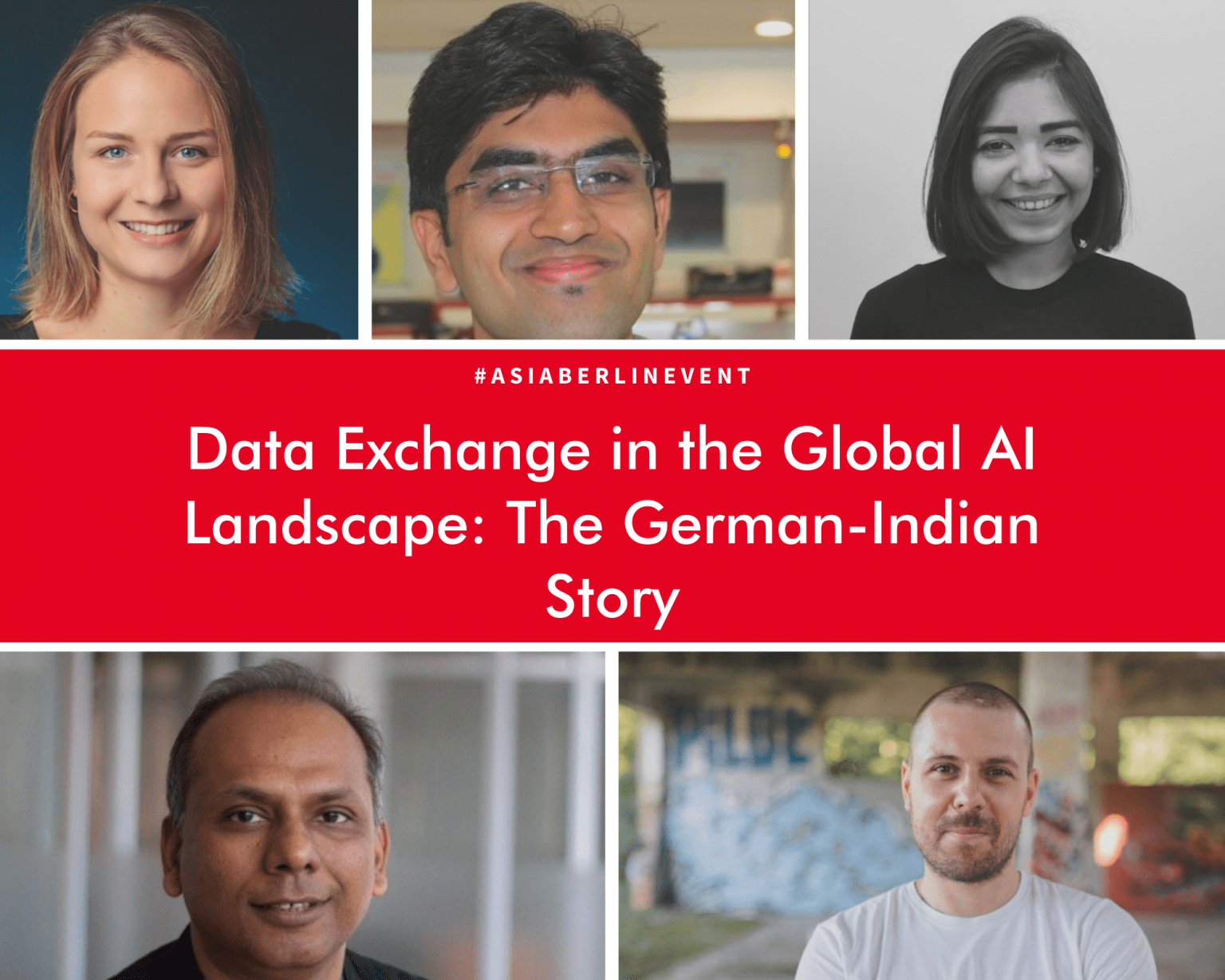With data leading most AI innovations, tech entrepreneurs worldwide are hungry for more data to support their work. A recent study has identified India to be a potential long-term data exchange partner with the EU. This brings us to the question of what type of data is needed to drive AI innovation? How can Germany and India be partners in the global AI landscape? What are the challenges for such a collaboration? At our AsiaBerlin event “High on AI? Data Exchange in the Global AI Landscape”, we asked our experts these questions. Here are edited excerpts from the online event.
Quality Data over Quantity
Manish Singhal is a founding partner of pi Ventures, an early-stage venture fund based in Bangalore that works with disruptive applied AI solutions. His team has worked with startups leveraging Machine Learning and AI to innovate markets from medical technology to fintech. Manish launched the fund in 2016 when there were barely any AI startups in India, “[now] five years later, there is hardly any company I meet which is not already implemented AI, or not thinking about implementing AI” he says.
Going forward, he believes AI actors such as investors, entrepreneurs and innovators in this space need to sift through the noise and adopt new techniques to optimize the relevant type of data to collect. “Let’s not get fooled by lots of data, let’s look for good, quality data and then make your strategy on that,” says Manish.
Dr. Vijay Gabale is the Co-Founder of Infilect, an enterprise software as a service (SaaS) provider for the retail sector based in Bangalore. Their products use visual data intelligence to build AI systems that empower retail decision-makers. He shares Manish’s view that targeted and quality data is preferable over information overload. “It is absolutely key that we collect a small set of data from each of the markets and that’s the reason why we have partnerships with companies like GfK where we get that early input, in terms of understanding the market, understanding the data, understanding the way products are packaged,” says Vijay.
To support his company’s growth strategy, Vijay stresses the importance of international collaboration, which he believes empowers all actors involved, “In the end, it’s a win-win for the companies, we are solving a common problem, (…) which ultimately benefits everybody.”
Collaboration Opportunities in the AI Space: India and Germany
Johana Šperlová is a Project Manager at Berlin-based Merantix Labs, an AI venture studio that transforms AI research into AI companies. Johana supports the ideation, development and scaling of custom AI solutions for clients in industries ranging from healthcare to manufacturing. She sees a lot of partnership opportunities between Germany and India to complement each other’s talent and organizational capabilities, “Germany has a lack of Machine Learning, Computer Science talent and I think this is one way where we can see quite deep collaboration with India because India has quite a deep computer science training.”
Dr. Tivadar Danka is the co-founder of Telesto.ai, a Berlin-based startup that aims to solve problems through machine learning by connecting businesses to developers. He shares Johana’s assessment of India’s strong talent pool of computer scientists and sees his startup’s business model as an enabler of collaboration between the two countries, “India is especially known for its excellent computer science education so there is a lot of talent there that can participate in the collaboration, on the other hand, there is also a lot of potential industry partners that can facilitate collaboration between developers so I think our marketplace enables us collaboration between the two parties.”
Dipti Ganeriwala is the product-design lead for Vara.ai, a Berlin-based AI-powered breast cancer screening platform for radiologists that leverages Machine Learning to generate medical diagnostics. Dipti believes that sharing data between Germany and India can support startups like Vara.ai in developing and scaling their solutions, “If we validate our algorithm with Indian datasets, that will definitely increase the model’s robustness. Even within India, there is the potential for really diverse datasets so that is really important for us,” she says.
Dipti believes that these data-sharing collaborations would stretch beyond the AI space and would ultimately serve the wider community, “We would gain scientific knowledge transfer from India, India would also gain something from understanding what the German screening system looks like as just one example of how lives can be saved with early detection and such a system can be adopted.”
Final Thoughts
This event showcased unique insights from AI innovators from Germany and India. The key takeaway from this session is that simply data collaboration is not enough. Instead, actors should adopt smart and optimized data sharing processes to yield better results for AI startups to develop and scale. Further, the speakers also identified plenty of collaboration opportunities between Germany and India in AI innovations. Chiefly, to complement each other’s talent and organizational capabilities and knowledge transfer technical support synergies.
Watch the full event video here :
Want to be updated on all the fun we are having at AsiaBerlin? Follow us on Linkedin, Instagram, and Twitter for regular updates on all AsiaBerlin activities.



